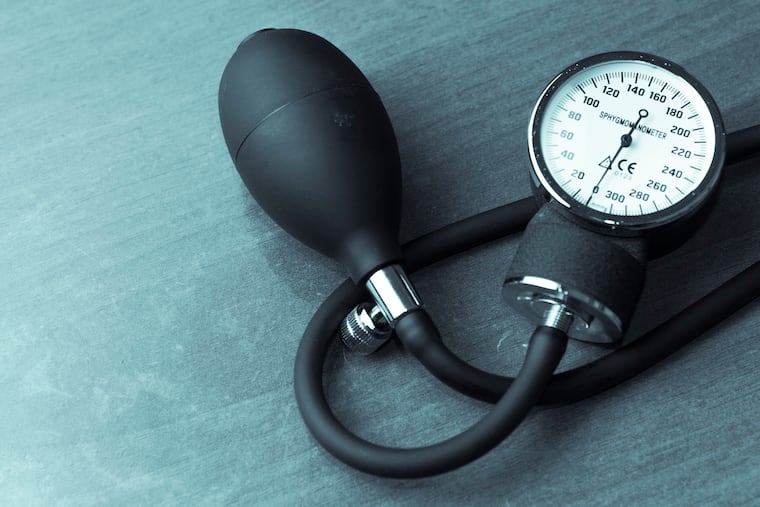Got high blood pressure? Look at what’s on your plate — and in your glass. l Expert Opinion
Even the most careful adherents of a healthy lifestyle may need to take medicine to reduce blood pressure.

High blood pressure, also called hypertension, is extremely common, affecting 45% of adults in this country. Having this diagnosis can lead to a visit to a cardiologist because, even with medication, only one in four people have the condition under control. Ideally, blood pressure should be under 130/80. If it is higher than this it is called at least Stage 1 hypertension.
When I see someone in the office with high blood pressure, the patient almost always asks whether it can be controlled without prescription medications, and the answer is often no. Although losing weight, exercise, and following a careful diet will help lower blood pressure, often medications are needed. This is because there is frequently a genetic basis for having it — having a family history means that your body may be “wired” to have hypertension.
Plus, the lifestyle changes needed to control high blood pressure — such as limiting sodium and alcohol intake — can be easier said than done, as recent studies show.
Salt intake does not affect everyone the same way. If your blood pressure is normal, consuming too much salt will usually not make it higher. Some people are more “salt sensitive” than others. But if you already have elevated blood pressure, salt will further raise your pressure.
A recent trial conducted in rural China, published in the New England Journal of Medicine, involved nearly 21,000 people. Half used regular salt, and half used a salt substitute containing potassium chloride. Participants who used the salt substitute had significantly lower rates of stroke, cardiac events such as heart attacks, and death. When they began the study, all the participants either had a history of stroke or were over age 60 and had poorly controlled hypertension.
Sounds great, right? But it would probably be impossible to conduct a similar study in this country because salt is present in so many prepared foods. Even if you replaced the contents of your salt shaker, you wouldn’t get the results the Chinese villagers achieved.
Another study, published in the American Journal of Cardiology, looked at alcohol consumption, which other studies have shown can worsen hypertension. But this analysis, with more than 17,000 participants, found it took as little as one drink a day to raise blood pressure, especially in Black patients. The conclusion was that current guidelines for low to moderate alcohol drinking defined as up to one drink a day for women and up to two for men should be reduced.
Note that a single drink may be less than you think: one 12-ounce beer, six ounces of wine, or one ounce of hard liquor. So a martini made with two ounces of vodka counts as two drinks.
Exercise, losing weight, replacing salt with a salt substitute containing potassium, and decreasing alcohol intake are all effective ways to reduce hypertension. But if you do all of these things and your readings remain elevated, you need medication, even if you feel fine. There’s a reason they call hypertension a silent killer.
As we age, keeping the top number (called systolic) low is critical to reduce the risk of stroke and heart attack. But medication isn’t permission to eat and drink whatever you like. To be truly well, you must also seek out and implement effective ways to improve the way you live.
David Becker is a board-certified cardiologist with Chestnut Hill Temple Cardiology in Flourtown. He has been in practice for more than 30 years.